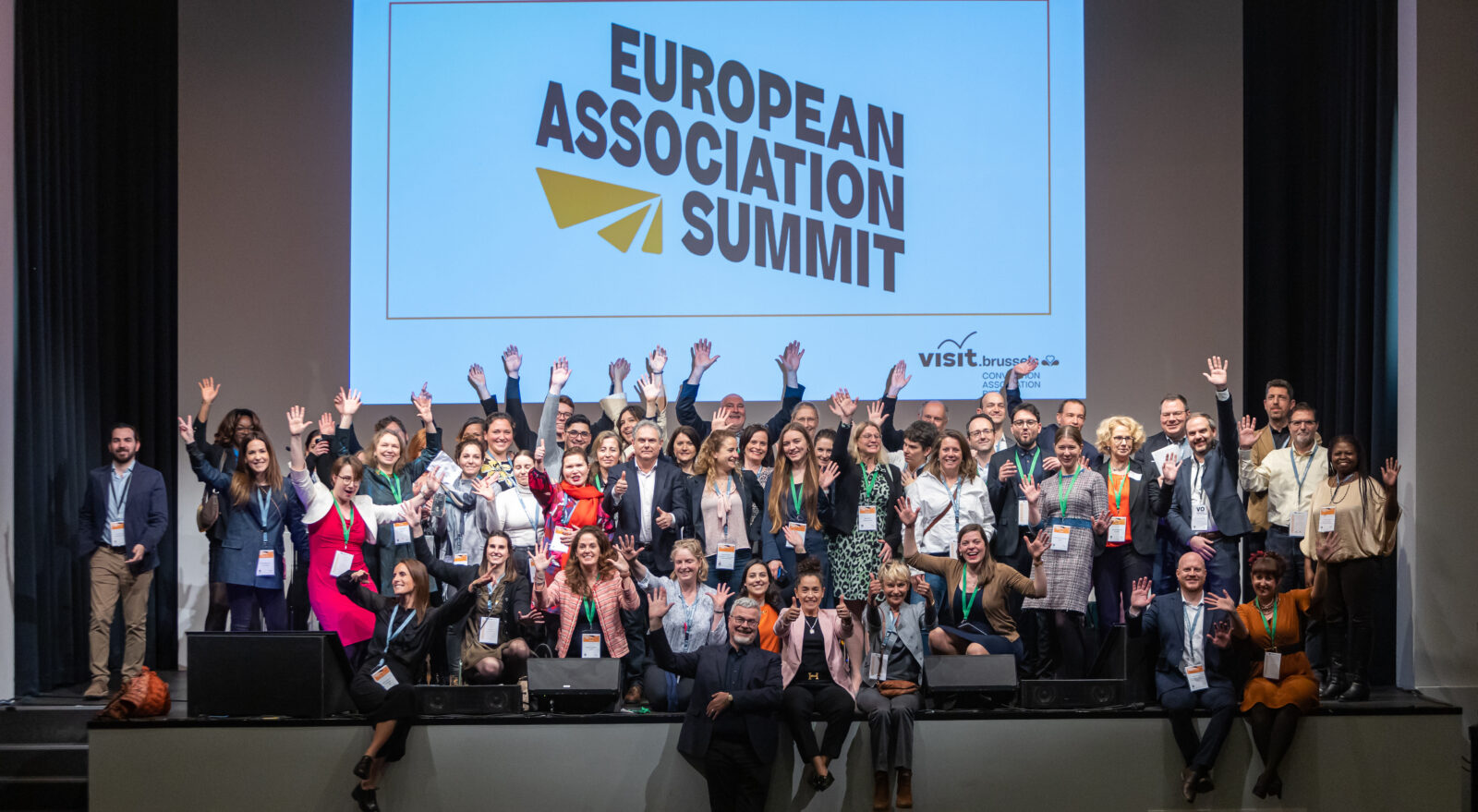The first day started with a panel discussion on the critical topic of learning and the various ways that associations can improve their learning programs. With participants agreeing that learning is still a motive to join in-person events, the panel went further to recognize the value of bringing delegates from different countries together: new ideas are born since countries don’t always share the same learning methods, e.g., in vocational training. The notion of informal learning outside organized educational institutions (digital tools, informal meetings, peer-to-peer exchanges) gave the discussion a holistic approach, especially considering that “learning is ever-present, lifelong and more of an attitude”, as Andrea Lapegna, Deputy Director at Lifelong Learning Platform, said.
Inside transformation
The mentorship panel focused on the critical role of mentorship in promoting leadership development and career growth within associations. Panelists discussed the importance of having structured and supportive approaches to mentoring and shared their experiences with mentorship programs. They highlighted the benefits of mentorship for both mentors and mentees, including increased job satisfaction and retention rates. “Mentoring serves professional as well as personal development,” said Joyce Dogniez, Vice-President Empowerment and Outreach of the Internet Society Foundation. “It’s all about transforming from the inside out,” added Susan West, Adjunct Faculty, Leadership- Solvay Brussels School Economics & Management. “It fills a gap that trainings, education or coaching can’t fill.”
In a cozy atmosphere next to a digital fire, the hot topic of advocacy was discussed by panelists from different associations. The group shared their views on how advocacy has changed post-pandemic: EU capitals now have a louder voice and do not just rely on Brussels representatives to speak for them. Transparency and accessibility have become essential for effective policymaking, which has led to enhanced collaboration between associations and official institutions. “The more clarity and issue-prioritization behind decision-making processes, the less pushback there is from members”, said Yann Finger, Director for Operations & Intelligence at DIGITALEUROPE. Social media is, of course, a great way to do advocacy, but not always the best course of action, the panelists agreed, since a more in-person approach might prove more effective.
Another highlight session, moderated by Benita Lipps, Head of Association Management, Dentons Global Advisors, focused on inclusion in the association industry. The panel featured a group of experts who discussed ways in which associations can create not only more diverse and welcoming events but also be more inclusive in their daily operations. Panelists emphasized the importance of understanding the specific needs and challenges faced by underrepresented groups, such as people with disabilities – in that regard, the work of Milan Sverepa, Director, Inclusion Europe, and his teams is very important as they work to ensure that people with intellectual disabilities can live and participate in their communities on an equal basis with others – members of the LGBT+ community, and people from diverse cultural backgrounds. They suggested practical steps, such as providing accessibility accommodations, offering diverse and inclusive programming, and creating safe spaces for attendees to connect with one another. The panel also emphasized the need for associations to take a proactive approach to inclusion, by creating policies and guidelines that promote diversity and inclusion at all levels of the organization. “The whole idea is to be deliberate, intentional about it,” said Rachael Moore, co-founder of Rainbow Nation Brussels. “Of course this can be difficult. But what is difficult is not impossible.”
Impact of AI on associations
In another fireside chat, Loredana Bucseneanu, Project Manager for AI at the European Digital SME Alliance, and Marco Baldoli, Senior association Manager, Kellen, discussed the impact of artificial intelligence (AI) on the association community. They began by acknowledging the hype around AI and the need to be engaged with new tools like ChatGPT, despite concerns over data privacy in some countries. The conversation then shifted to a pragmatic discussion of the various AI-enabled platforms and tools used by associations, such as copy.ai for writing and NewBing and BARD for current events. Loredana mentioned also that AI can be helpful regarding funding opportunities. In the second part of the conversation, they addressed the ethical concerns surrounding AI, including the potential for job displacement, unintended consequences, and gender and diversity issues. Loredana, however, views AI as an opportunity to develop new skills and put humans at the centre of it all, while Marco emphasized the need for associations to take concrete actions to ensure that AI is carefully managed and benefits human beings in the long run.
Altogether, the European Association Summit offered an important opportunity for association professionals to collaborate and exchange knowledge on ways to advance their industries. In addition, visit.brussels used this occasion to acknowledge the outstanding contributions made by eleven of its Ambassadors, such as Tina Marolt from Hydrogen Europe and Krisztina Stiegler from DIA Europe. These Ambassadors were recognized for their role in promoting Brussels as a top destination for conferences, congresses, and large meetings. The Brussels Meetings Ambassadors Night, which took place at the KBR in Brussels, was a well-deserved celebration of their achievements.
